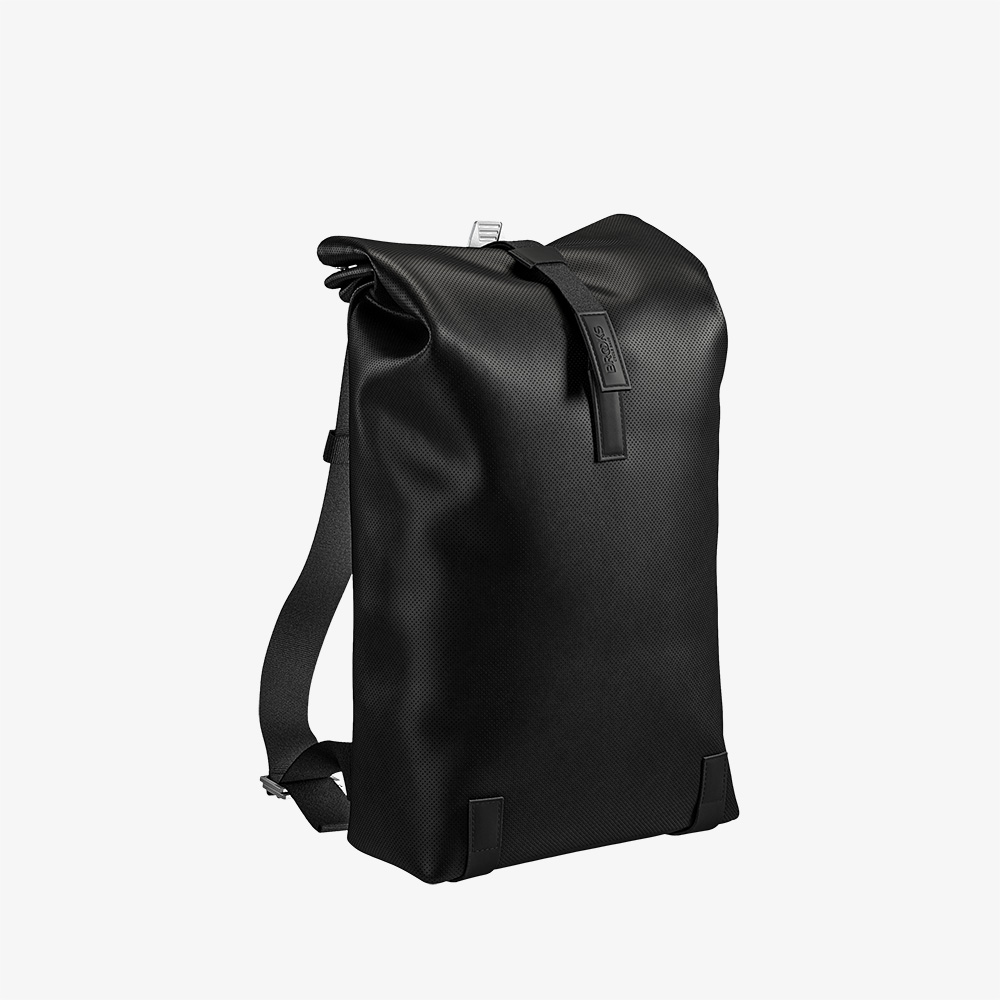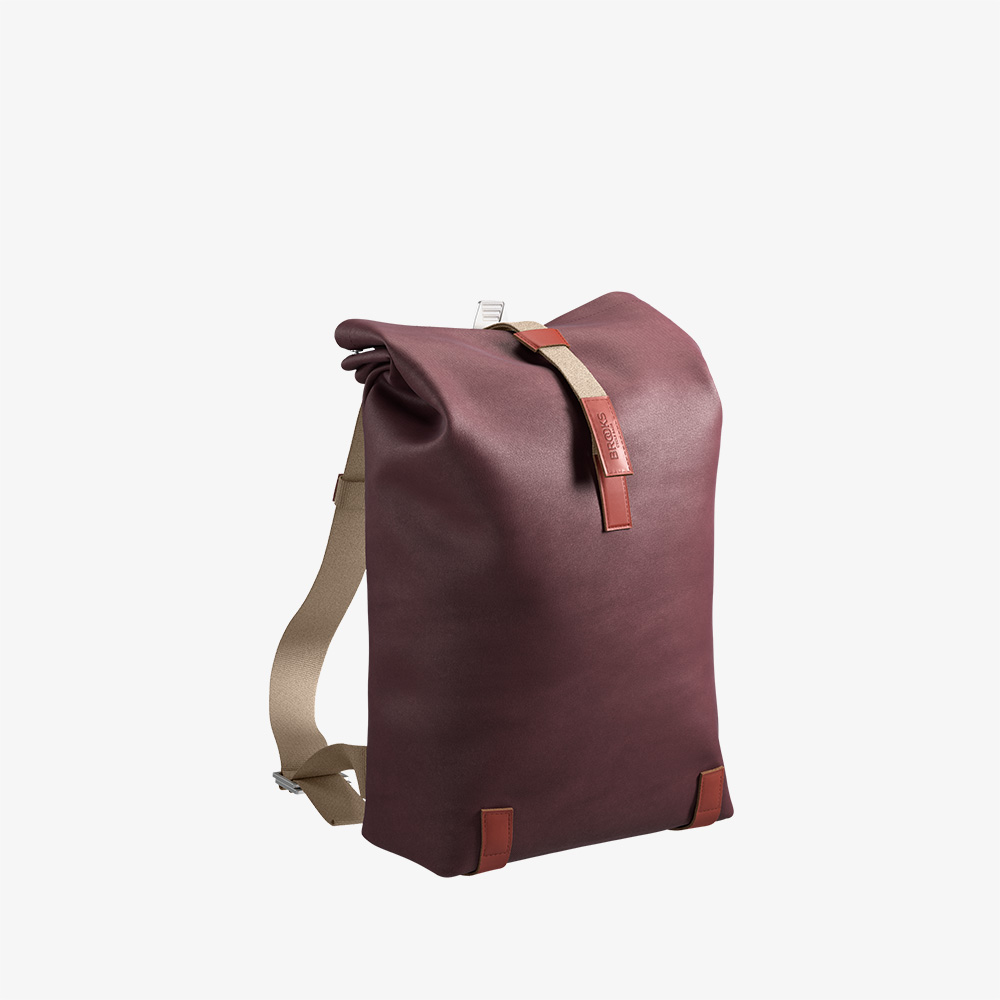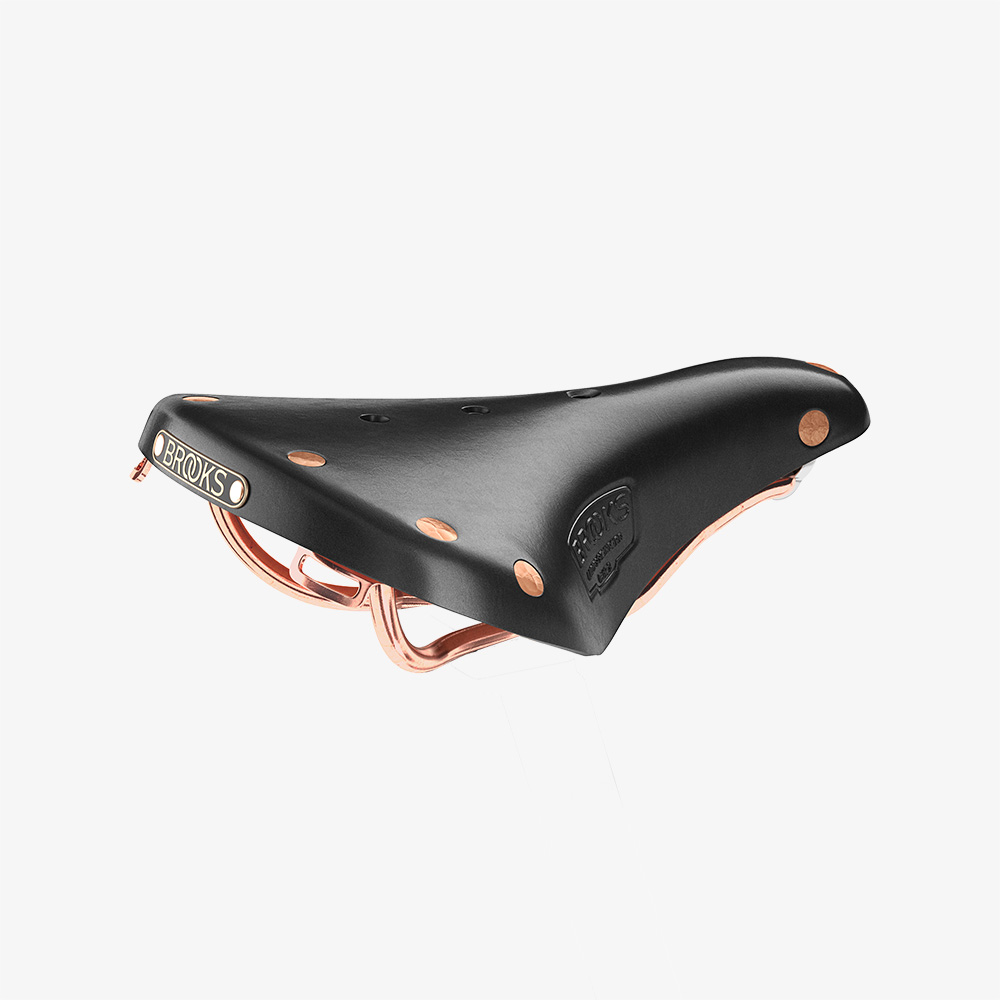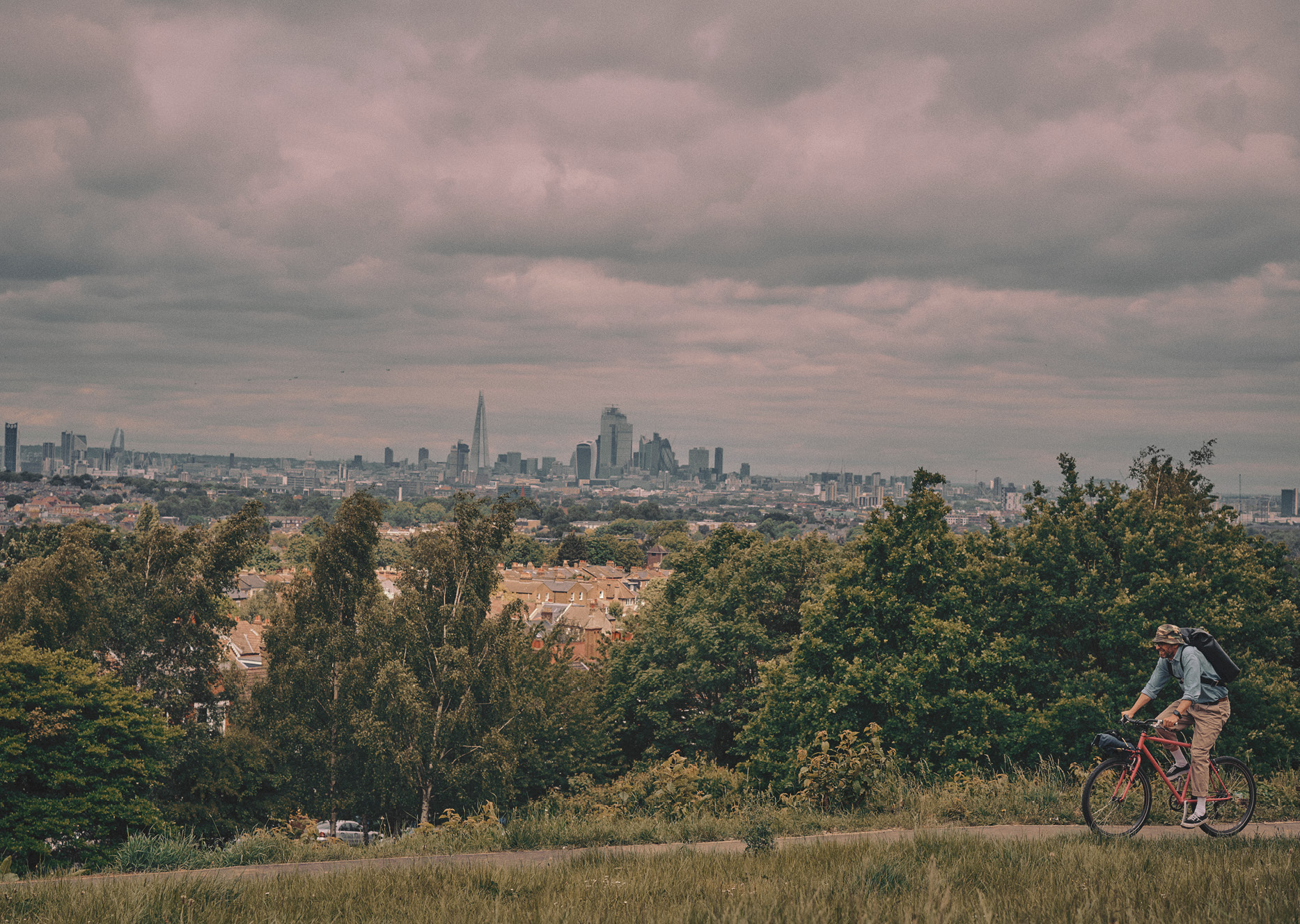
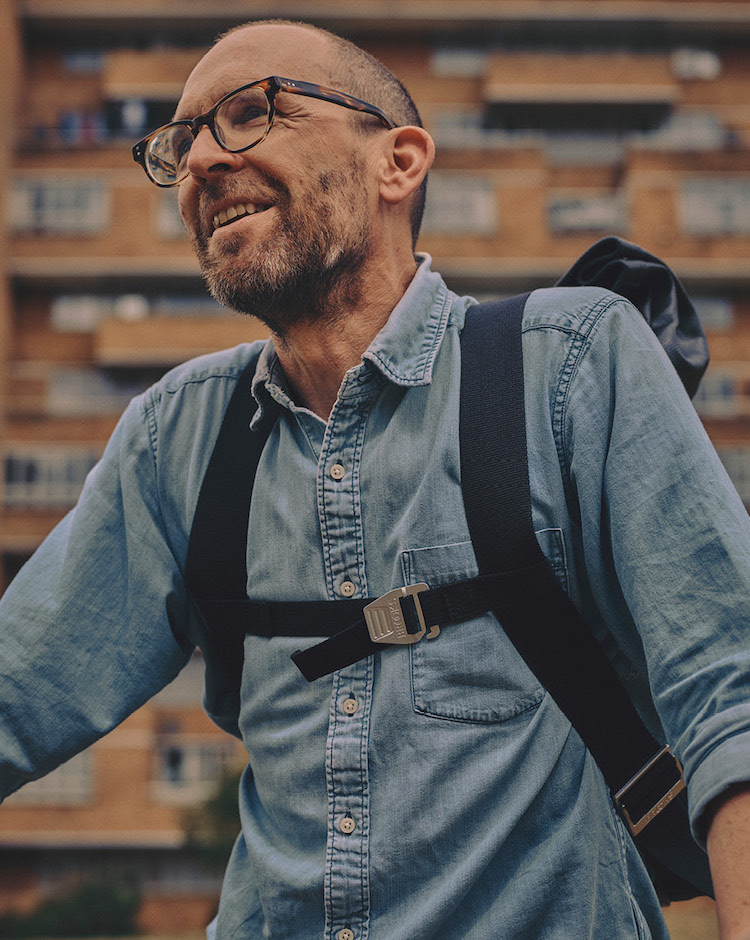
People
Cycling and visual philosophy with James Jarvis
There is always more to explore
By Tom Owen
Cycling is a tool of freedom, but not just freedom of the road. Riding a bicycle also enables a certain freedom of the mind, wandering into reflection or meditation as the machine beneath us propels us forwards.
James Jarvis combines these two freeing aspects of riding a bike in his daily life as an artist from South London. He coined the term ‘visual philosopher’ for himself, an illustrator by education but philosopher by lifestyle. For almost fifty years, he has used the bike as a tool for getting around London, the city he has lived in his whole life.
We talked with James about how cycling was elevated from simple city commuting to everyday exploration for him, about how it enables and influences his drawing, and his life as a visual philosopher.
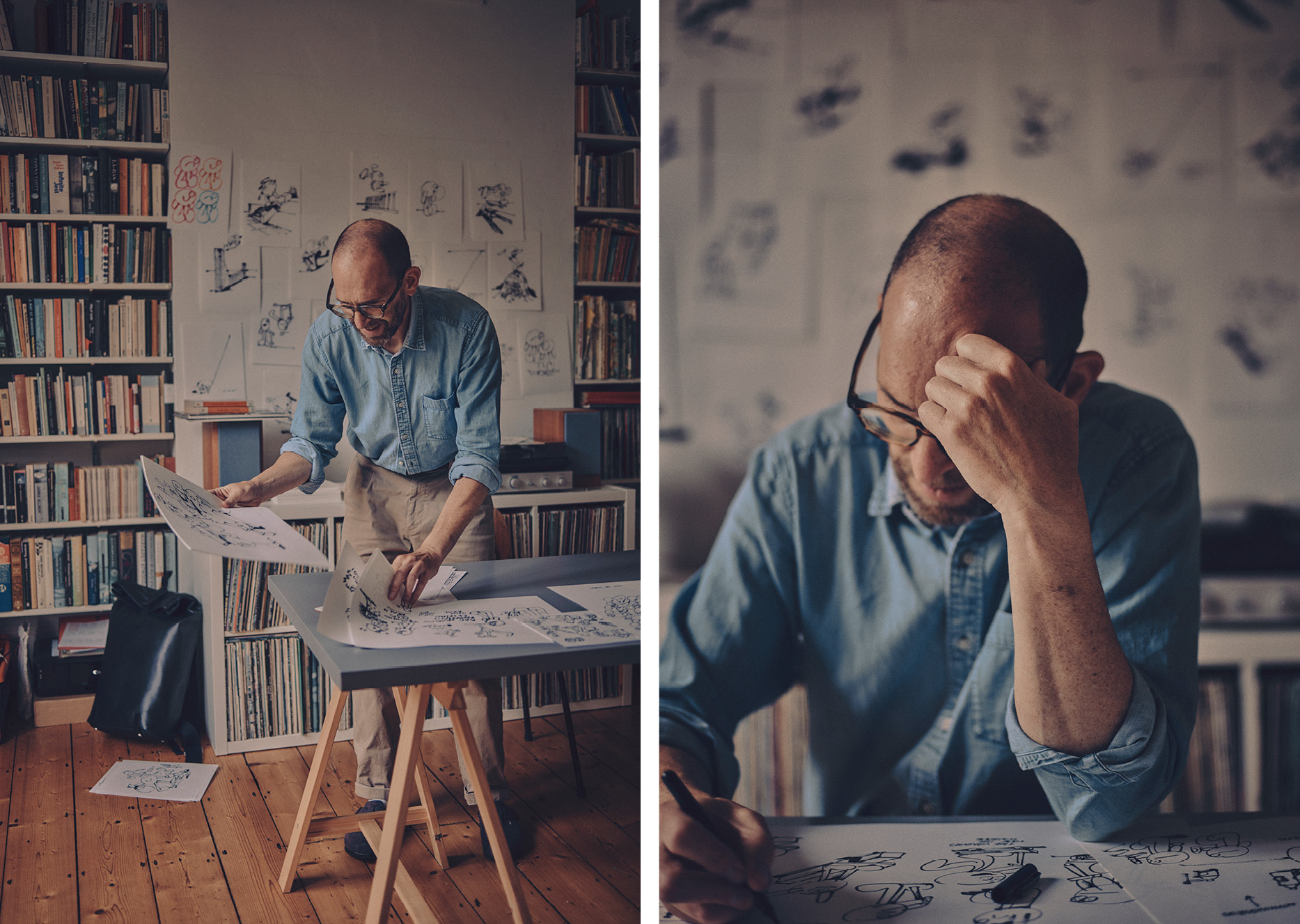
When you experience London – by bike, skateboard or on foot – how do you see the city through your eyes, through the eyes of an artist?
It depends because sometimes I’m just moving through London and not really thinking about what’s around me because I’m doing something else. But because I’m quite interested in philosophising about everything I do and making some kind of philosophical sense of it all, I often imagine that I’m a kind of modern-day Baudelaire, a flâneur aimlessly wandering the city, not really doing anything with any purpose but just looking at everything and digesting it. I don’t make judgments when I go around London, I’m just looking at everything.
What role does the bike play in your philosophising process?
What I like about cycling is that freedom to roam that it gives you, and that you can cover large distances. So, if I want to go and draw A Clockwork Orange banks in Wandsworth or I want to go to Harrow Skate Park, or Stockwell, Deptford, you name it – maybe somewhere I’ve never been to – the bicycle is an amazing tool for getting there. In that way it feeds into my work because it gives me that ability to look at stuff, more than I would if I was just on foot.
My background is in skateboarding and for me, skateboarding is the original urban lifestyle which is a very all-encompassing thing. I never saw cycling as a lifestyle, it’s just this really beautiful means of transport and it’s incredibly efficient.
Honestly, if I need to think, I often find I’ll walk because walking doesn’t require you to operate any machinery, you have more freedom to think. But it limits you and London’s a huge city, so the bicycle is the machine that makes journeys interesting and meaningful because of the nature of the machine and what a bicycle is.
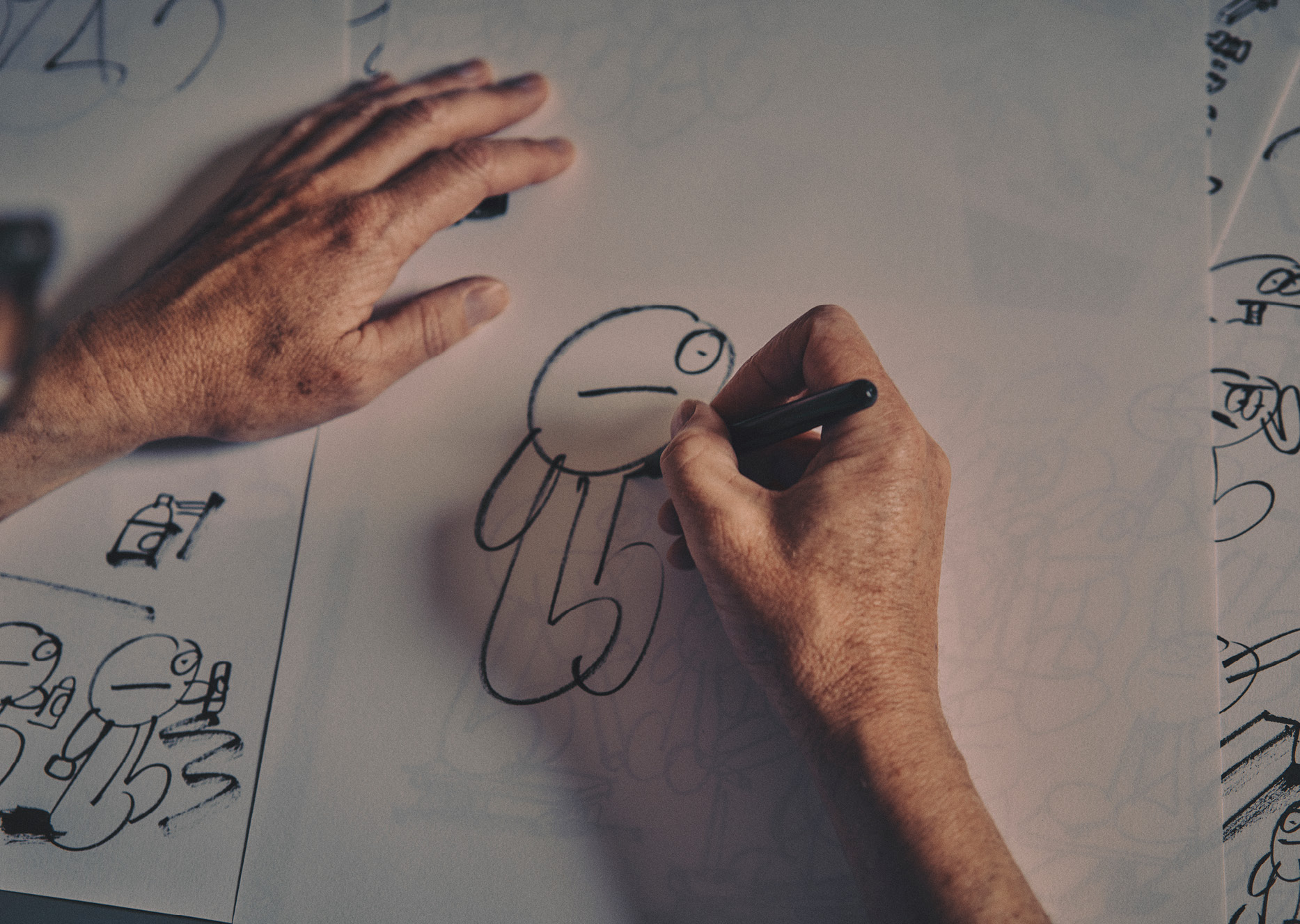
What’s your history with the bicycle and with cycling?
It’s simple, I love the bicycle as a machine. But I don’t only like racing bikes, I like recumbents and folding bicycles and BMX because the base of it is this really amazing and very human-sized machine. I think there’s something really interesting about that.
The first bike I wanted was a BMX but, because my dad didn’t think BMXs were proper bikes, the first bike I got was this beautiful Eddy Merckx racing bike. I did a bit of racing and spent lots of time building up my miles in the Kent lanes as training. But then I had kids and I couldn’t commit to racing any longer. It was then that I re-connected with the love of the machine itself and of the freedom of just getting on the bike, no matter what you’re wearing or how much you’ve trained.
For me as a kid in London, that freedom was really important. As soon as my parents allowed me to make journeys by myself – I was really quite young, maybe 11 or 12 – I was cycling all over the place. That’s really amazing when you’re a kid. I don’t think you ever lose that feeling of freedom, of being able to go places, but the journey becomes a meaningful thing because you’re actually in the place in a way that you’re not in a car. In a car, you’re isolated from your environment, whereas on a bicycle, you’re part of the environment that you’re moving through and connected to it.
Did that connection to the world around you when on your bicycle influence your career?
A bicycle is a unique machine because you can see how it works, it’s very transparent. Whereas you look at a car and you turn the ignition and the engine turns on and there’s a bit of mystery to it. I think maybe there’s a connection to that transparency in my work, in that I’ve tried to bring what I do very much back to drawing.
At the beginning of my career I was making objects and things, toys and graphics, and then I started thinking what do I do, what do I really do, and what’s at the centre of who I am as an artist? The answer was drawing, so I made an effort to bring everything back to that.
If I were to look at this objectively, I’d say that I was looking to do something authentic, but that making all these things and using industrial processes were disconnected from the humanity of drawing. Maybe there’s something similar in cycling in that it’s a human, authentic thing because you’re powering this machine yourself, you can feel yourself pushing a gear along. And maybe that is in my work again – though they’re not the most polished or finessed, there’s an authenticity to my drawings.
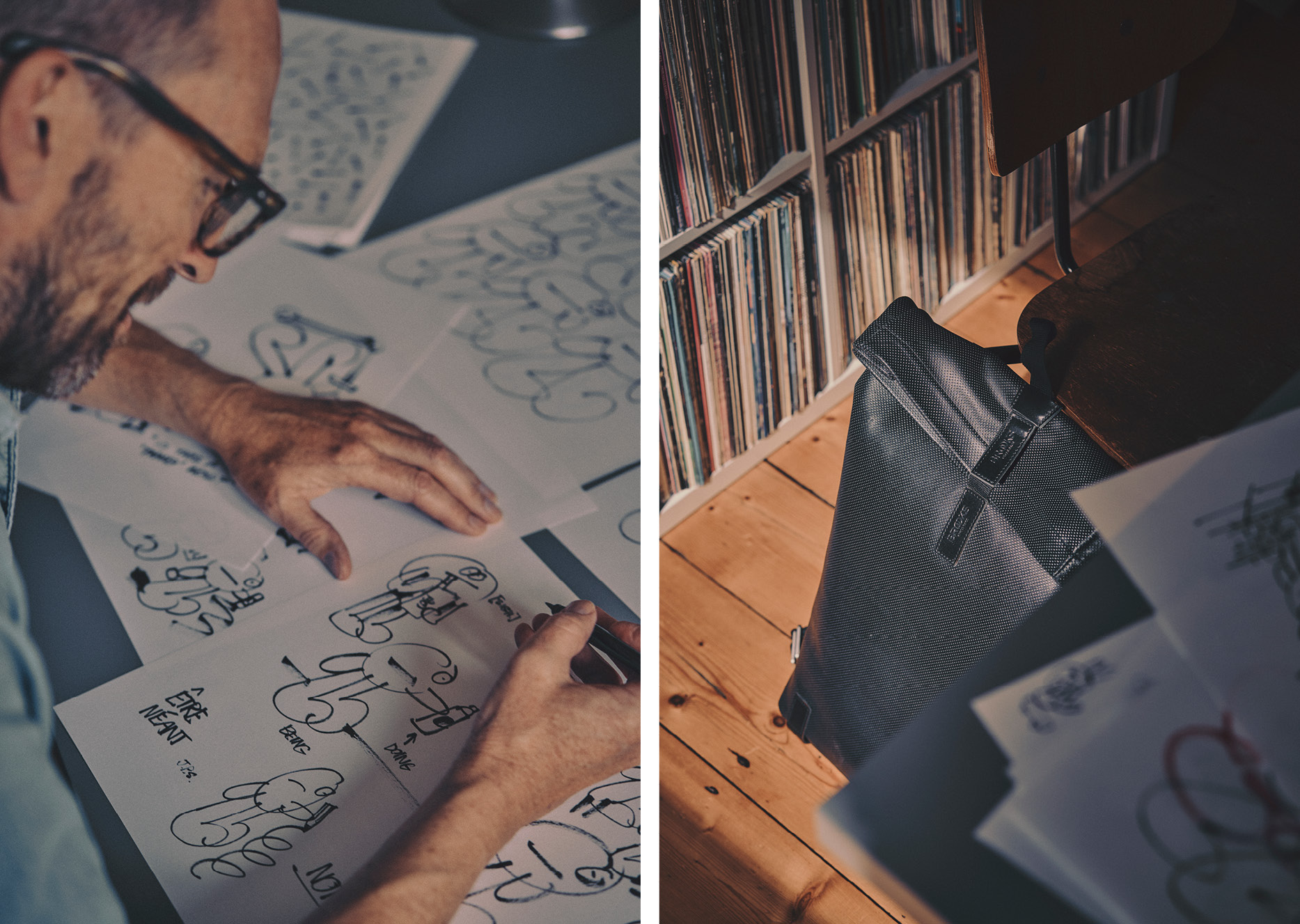
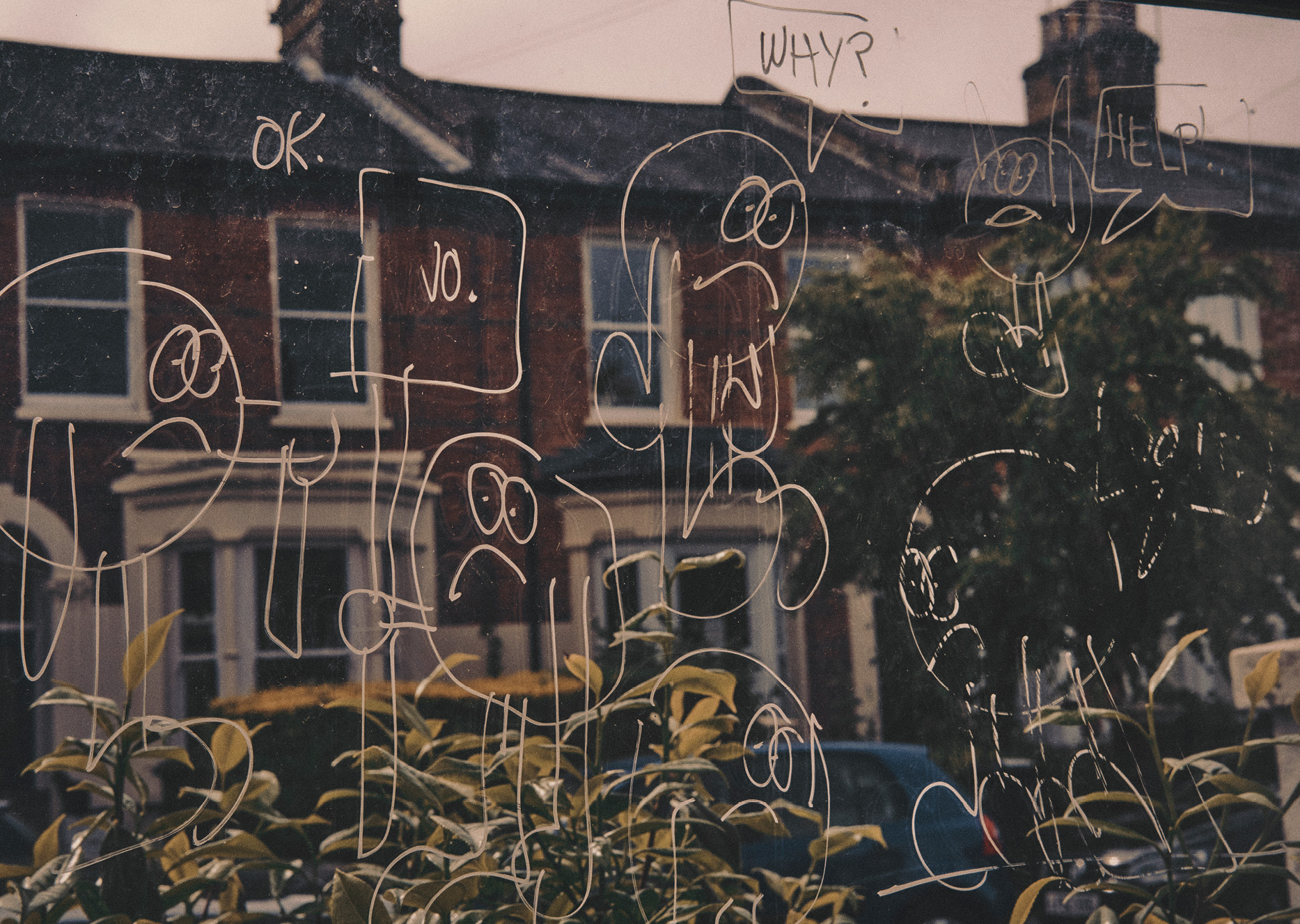
Do you describe yourself as an illustrator?
Well, I trained as an illustrator and I’m an illustrator on my tax return, but I’ve never really worked like that. That idea of solving problems, according to a brief, has never really been what I do. I decided I’d just make up my own definition of what I do, and because I got really obsessed with philosophy for a bit, I thought I’m an artist and visual philosopher. Nobody can be put in a box really, we’re all more complicated than being reduced to a very simple thing.
I don’t really illustrate but I’m kind of embarrassed to call myself an artist because somehow, it’s vaguely pretentious. So, I think if I’m going to be pretentious enough to call myself an artist, I’ll be really pretentious and call myself a visual philosopher. Really, I’m a person who draws. Though drawing isn’t really a decision I make, it’s essential, it’s like breathing, it’s how I think. It’s not really a job for me, it’s a calling, it’s like becoming a priest.
Cycling is clearly a good way of going from A to B, but it’s also a great way to explore the city – to be an explorer. Does exploring by bicycle affect what you do?
The answer is twofold, really. For me, drawing is a tool for understanding the world, it’s how I mediate the world. And cycling is a tool too, in a way, and that’s what interests me about it: that very pragmatic aspect of cycling that it’s a tool for moving around the city and it enables exploration. Walking does as well, but cycling enables you to cover large distances really efficiently so it’s a tool for exploring just like drawing is a tool for understanding.
Is there any journey that still remains undiscovered for you?
There’s still a lot of London that is undiscovered for me. Unlike American cities that are built on a grid, London is old and illogical with lots of hidden pockets and corners. I’ve lived in South London for pretty much 50 years, but I still find places that I’ve never been to, little streets, buildings, green spaces.
Do you ever take your bike or go on an exploration without knowing where the final destination is? Do you ever get lost?
I do. But I’ve been here so long that I don’t really get lost. One of the pleasures of going to other cities is getting lost. But there’s a pleasure in being incredibly familiar with a city because London is one of these transient places where so many people come and live here for a bit and then move somewhere else. I’m lucky enough to have been born here and grown up here so it’s part of me. Just like drawing is I suppose, it’s a very essential part of me.

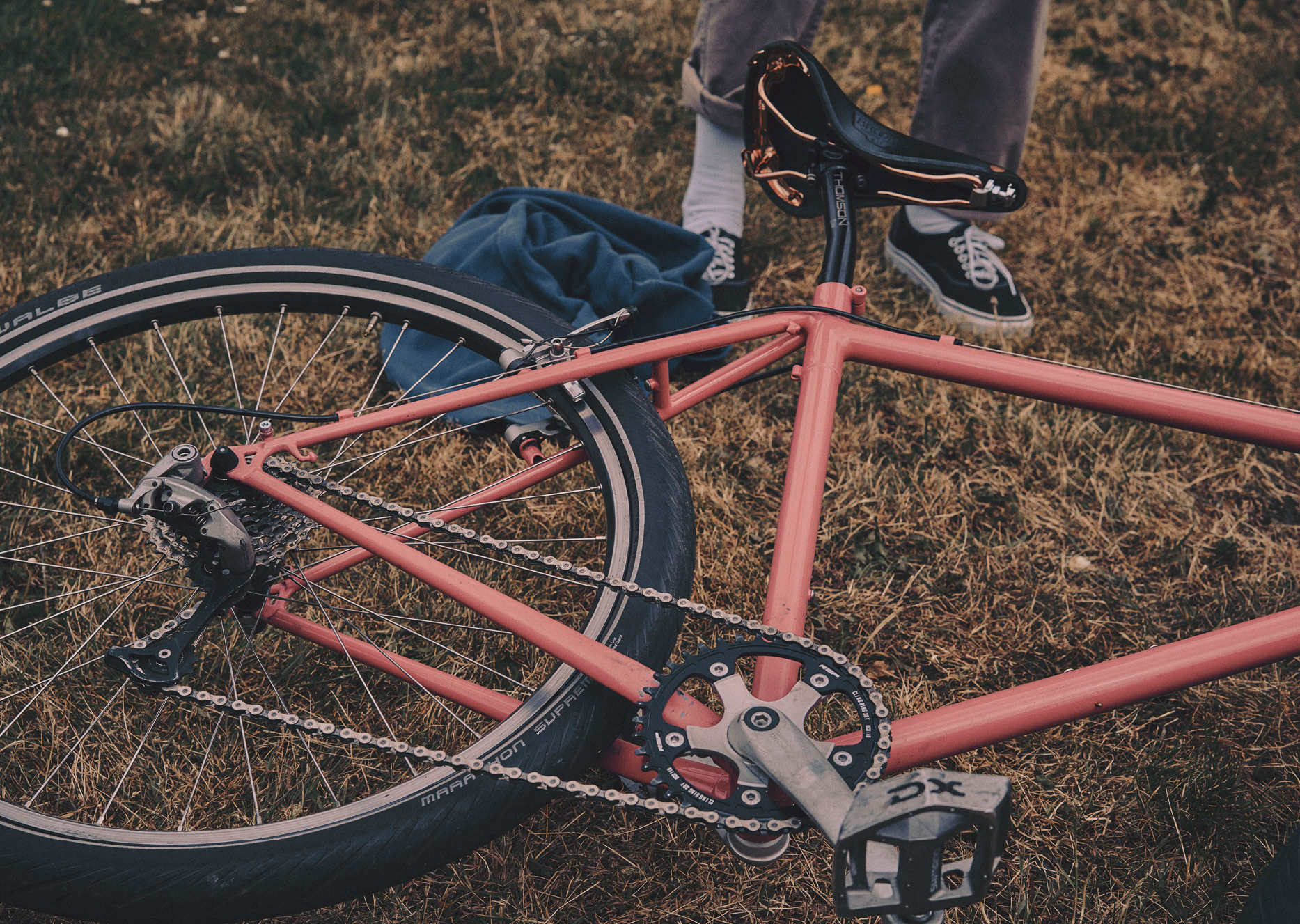
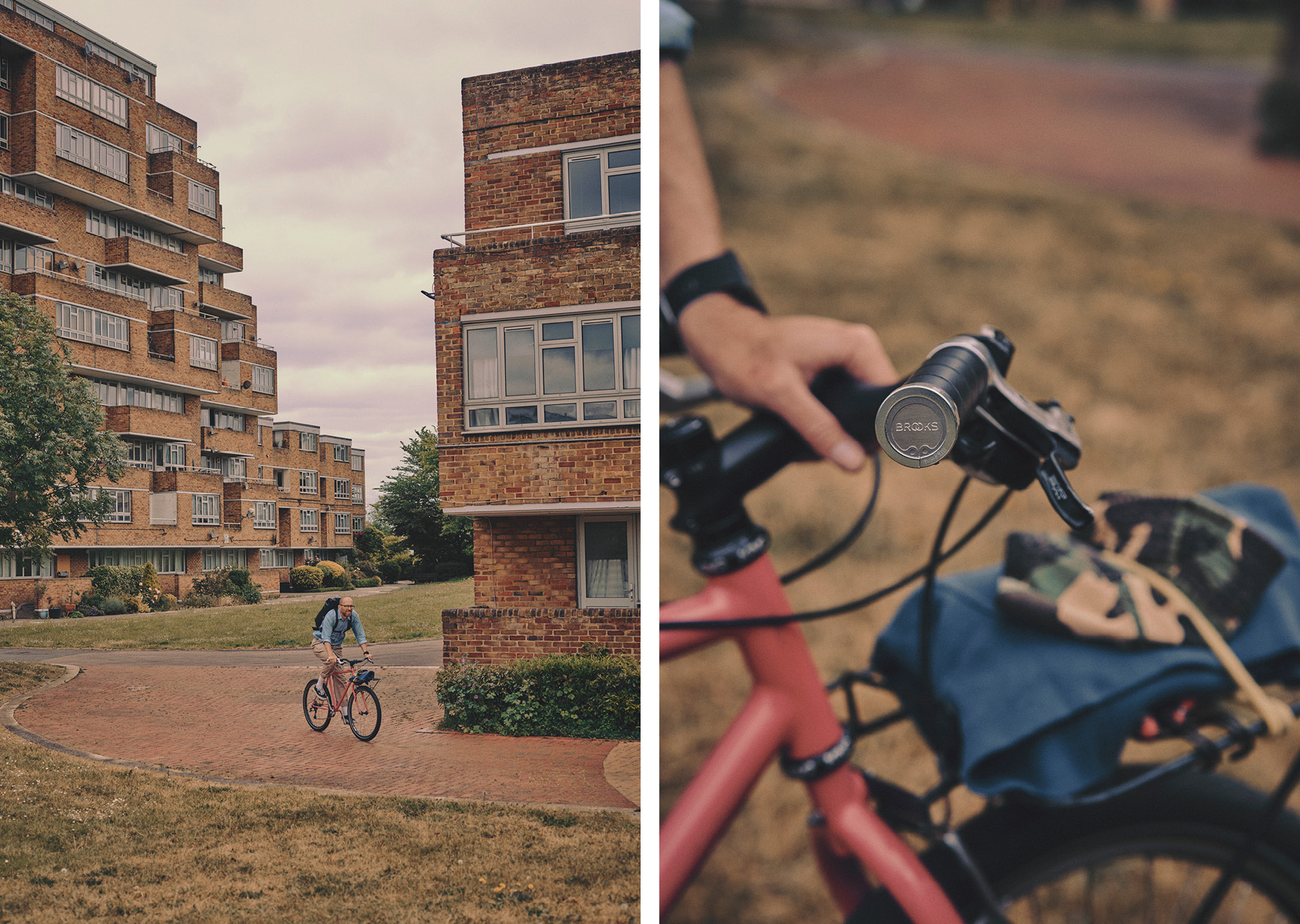
So, as a visual philosopher, how do you see the world around you?
As a visual philosopher, I think I see the world around me how everybody does, but I turn the same world that everybody sees into something that is very particular to me through drawing. I think there’s a myth that artists are somehow special, that creativity is special. Creativity is a job like anything else, you can work and learn to be creative, you read lots of books, you watch lots of films, you expose yourself to things and you keep an open mind and you can be creative. I don’t feel that I’m any different, I’ve just worked for 40 years to develop a certain skill with drawing that gives me a vaguely unique way of looking at the world.
And as a philosopher, how do you look at cycling?
I’d started to look at skateboarding as a way of understanding the world, just as with drawing. I remember thinking about cycling and asking myself, what does it mean? I get less and less interested in all the other facets of cycling, the sideshows of freestyle BMX or road racing, and I just like the idea of this machine, this beautiful, human-sized machine.
When you make a journey on a bicycle, because you are powering the journey, the journey somehow has more meaning than a journey that you’re being taken on, when you’re passive. What’s the opposite of being passive? There’s something assertive about being in control of the journey, in control of the machine. Whether you cycle for pleasure, you want to go to a green space for a cup of tea, or you’re cycling somewhere to sit and draw, the journey has a meaning because you are powering it yourself. It’s a meaningful journey.
You’re very much part of something when you’re on a bicycle. You’re outside, you’re in the elements, you can feel the air moving over you, so you are connected in a way that you’re not in more passive forms of transport. It’s again going back to that authenticity of drawing, it’s an authentic experience that you can’t fake, it’s real and you have to experience it. You can’t experience it second-hand in somebody else’s media, it’s very much your own.
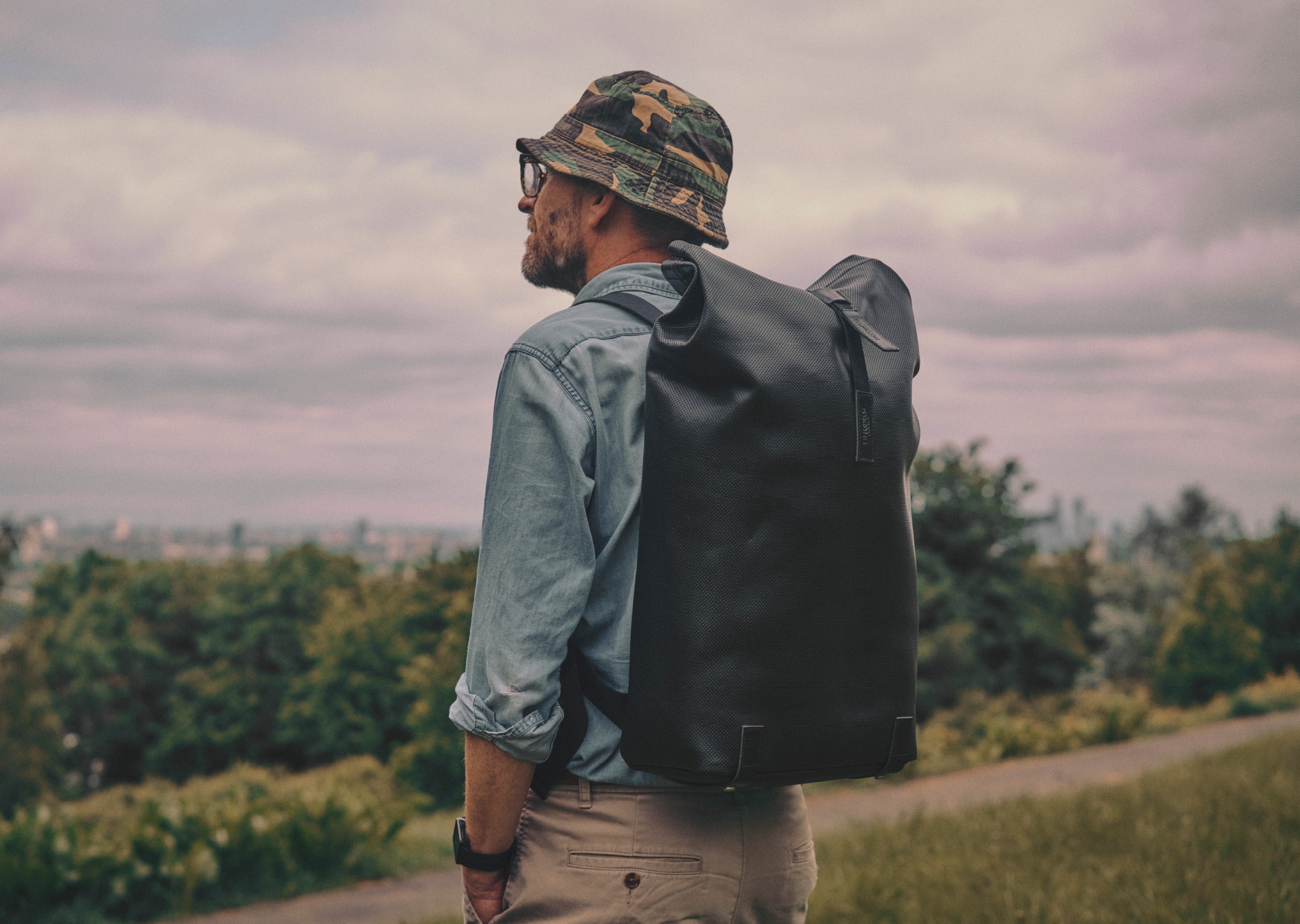
James Jarvis’ Essentials
More People Stories
Erwin Sikkens… the dadventurer

New Brooks ambassador Erwin Sikkens is a bikepacking gravel route deviser, and won’t let being a dad diminish his sense of adventure. Quite the opposite in fact!
READ MOREMr Imperfect… meet Allan Shaw
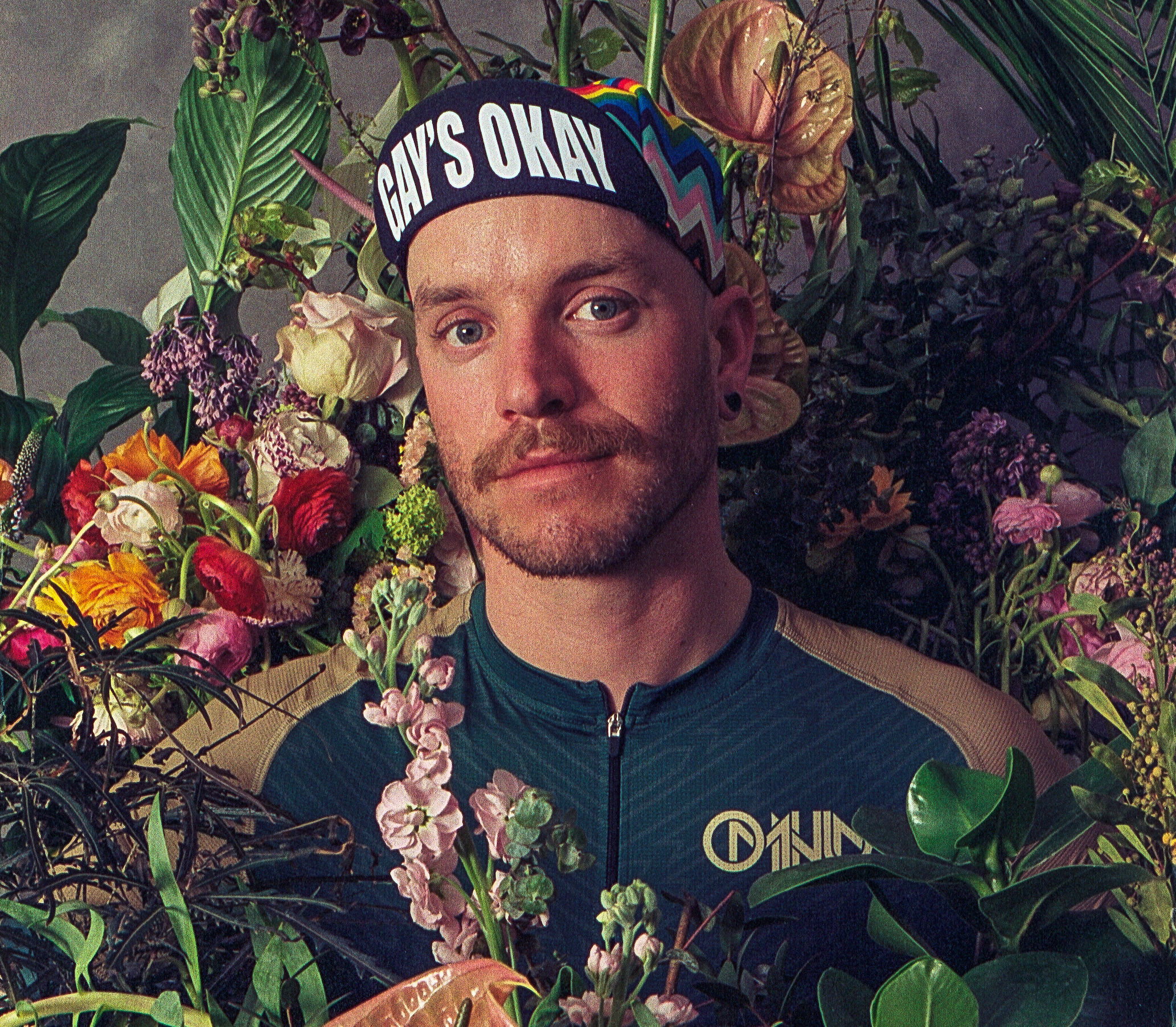
Discover Allan Shaw’s philosophy of anti-elitism, pro-imperfection, and eternal optimism.
READ MOREIntroducing… Anton Krupicka
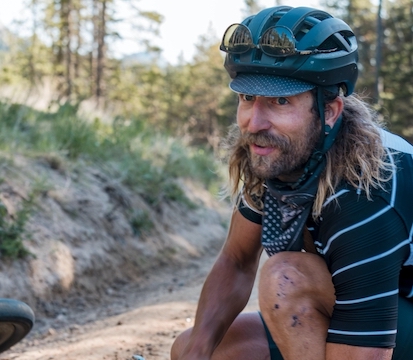
Anton Krupicka is an adventure cyclist, runner, skier. A longtime Brooks rider, we’re delighted he’s now also a partner athlete.
READ MORE


